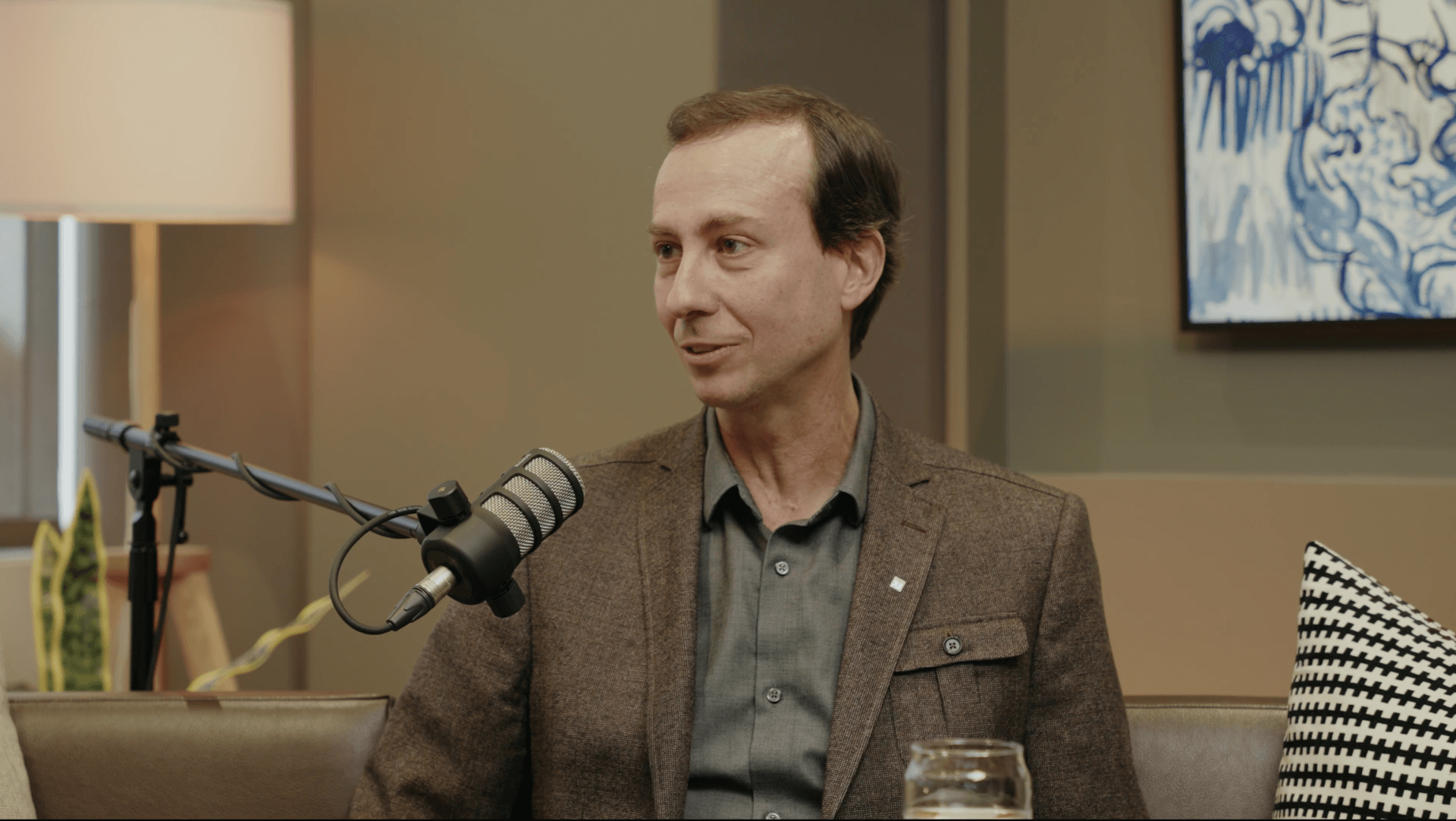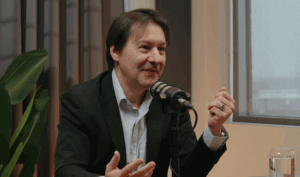Guest: Luis Antonio de Santa Eulalia, professor and researcher at the School of Management, University of Sherbrooke
Written by: Claudine Fyfe, President of Fynlam
The podcast explores the changes redefining supply chains and highlights the strategic role played by academic research and continuing education. Through a conversation with renowned professor and researcher Luis Antonio de Santa Eulalia, we discover how academia supports professionals in solving complex problems while equipping the next generation for future challenges.
A career at the crossroads of practice and academia
Luis begins by sharing his journey from the field to the university. Having worked in environments where management was mostly reactive, he realized the need for a more strategic and forward-thinking approach. This awareness led him to pursue research to explore the root causes of operational issues and design sustainable solutions, particularly beneficial for SMEs.
His hybrid profile, combining practice and research, allows him to bridge theory and action, offering frameworks that align with real-world needs.
Research as a tool for transformation
Luis highlights two key channels for disseminating academic research:
- Scientific articles: Published in peer-reviewed journals, these works are rigorous and accessible to a broad audience. Newer, more concise formats are now addressing the needs of managers who seek quick, actionable insights without compromising on quality.
- Conference presentations: These allow for the sharing of preliminary results and foster cross-disciplinary dialogue. Such interdisciplinary exchanges are essential for innovation and open the door to fruitful international collaborations.
Current challenges in supply chains
- A constantly evolving world: Health crises, geopolitical tensions, and digital transformation are pushing businesses to rethink their practices. Luis warns against a technocentric view of digitalization—often reduced to buying tools without strategic thinking. He emphasizes the importance of a holistic transformation, which includes fostering an innovation culture, revisiting processes, and investing in training.
- The challenges faced by SMEs: Luis identifies three main obstacles:
- A lack of resources hindering the adoption of advanced technologies.
- A culture that focuses on reacting rather than anticipating.
- Limited knowledge of available digital tools.
To overcome these issues, he recommends a gradual integration of digital solutions, supported by partnerships with universities that can provide tailored guidance and accessible expertise.
Attracting the next generation: changing perceptions of supply chain careers
A key challenge remains the attractiveness of supply chain professions. Too often perceived as technical or undervalued, these roles suffer from a lack of appeal. Luis offers several strategies to reverse this trend:
- Highlight the sector’s modern values: sustainability, innovation, resilience.
- Offer targeted training programs: such as the microprogram in sustainable strategic management that he helped develop.
- Rebrand supply chain careers: by showcasing their strategic impact, complexity, and richness.
A microprogram to support transformation
This university-level microprogram, offered at the University of Sherbrooke, is designed for professionals seeking to strengthen their skills while balancing work and studies:
- Hybrid format: (online and in-person) for greater flexibility.
- Project-based approach: with real projects conducted in companies.
- Strategic modules on negotiation, digital transformation, and sustainable management.
The microprogram in strategic and sustainable supply management is specifically designed for procurement managers in SMEs, with a strong focus on current real-world challenges.
A necessary synergy
Luis advocates for close collaboration between businesses, academia, and researchers. This alliance is key to building supply chains that are:
- More resilient to disruptions
- More innovative and open to transformation
- More sustainable—both socially and environmentally
Research should not be seen as an abstract domain but rather as a powerful, practical tool for organizations.
Personal notes
For Luis, innovation goes far beyond the technological aspect. It includes the continuous improvement of management methods, work organization, and internal communication. He also highlights the potential of artificial intelligence but reminds us that it cannot be effective without solid data governance. Before adopting cutting-edge technologies, it is essential to master the foundations: data quality, process clarity, and team training. Innovation is also about learning to anticipate rather than just react.
Plan, structure, and maximize your performance starting this quarter with our strategic guide for procurement professionals and executives. Download it now!



